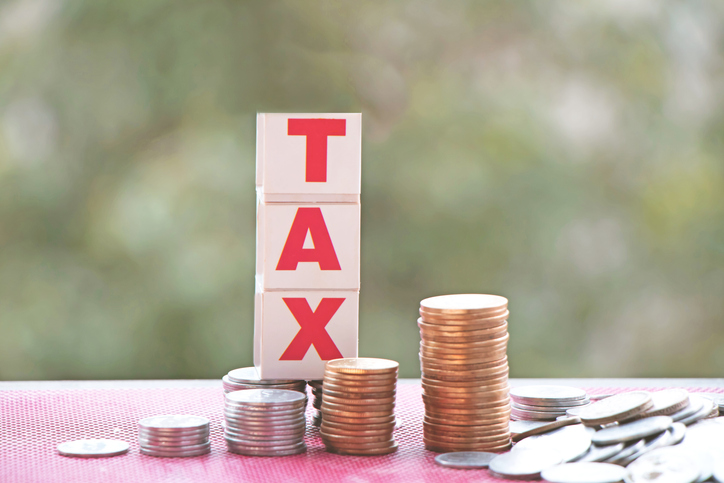
Taxing Cryptocurrencies
The concept, the challenges and the required changes
Unlike the RBI direction to all regulated entities including banks to deny services to businesses dealing in virtual currencies which was quashed by the Supreme Court, the tax treatment for cryptocurrencies announced in the Union Budget 2022-2023 (‘Budget’) is still standing. In sharp contrast to past statements from government officials on how cryptocurrencies would be taxed based on the nature of their holding, the Ministry of Finance has now adopted a “classification agnostic approach” in the Budget.
Accordingly, from 1 April 2022, income from the transfer of ‘virtual digital assets’ or ‘VDA’ which includes cryptocurrencies are subject to 30 per cent tax (plus applicable surcharge and cess) as per Section 115BBH of the Income-tax Act, 1961 (‘IT Act’). The framework also disallows all expenditures except for cost of acquisition of the VDA. A withholding tax under Section 194S of the IT Act at 1% on all payments for the transfer of VDAs was also announced.
Scope of the term ‘Cryptocurrencies’
This working paper focuses only on cryptocurrencies as defined by the Financial Action Task Force in their report titled ‘Virtual Currencies Key Definitions and Potential AML/CFT Risks’. The report defines cryptocurrencies as a math-based, decentralised convertible virtual currency protected by cryptography by relying on public and private keys to transfer value from one person to another and signed cryptographically each time it is transferred.
Given that stablecoins have a significant and fundamentally unique feature in a more stable value, their tax assessment merits separate evaluation and hence, this working paper excludes stablecoins from the scope of cryptocurrencies. Similarly, utility tokens and security tokens have been kept outside the scope of cryptocurrencies in this working paper as they have a distinct set of characteristics and use cases that prevent them from being clubbed with the broadly homogeneous block of cryptocurrencies as defined under this working paper.
Classification of cryptocurrencies
Owing to the unique features of cryptocurrencies, a universally acceptable classification of cryptocurrency is unlikely. For the period prior to 1 April 2022, cryptocurrencies would qualify as property under the IT Act. Whether cryptocurrencies are in the nature of capital asset or stock-in trade depends on factors such as the nature of transactions, the manner of maintaining books of accounts, the magnitude of purchases and sales, and the ratio between purchases and sales and the holding. For the period from 1 April 2022 onwards, the budget announcements classify cryptocurrencies under a separate class of assets – VDAs.
Under the extant Central Goods and Services Tax Act, 2017 (‘CGST Act’ or ‘GST law’), it is unlikely that cryptocurrencies would be classified as Indian tender, foreign currency, or any of the other terms listed under the definition of ‘money’. Hence, it is plausible that cryptocurrencies will qualify as goods which specifically excludes money from the ambit of goods.
Taxable events
The occurrence of an event that gives rise to tax liability is typically defined as a taxable event. Identifying a taxable event is therefore of paramount importance when assessing the tax liability of a transaction. In the cryptocurrency ecosystem, there are several events that may potentially qualify as taxable events, namely:-
- creation of cryptocurrencies,
- their initial distribution or acquisition, and
- their subsequent disposal.
Creation of cryptocurrencies
For the period prior to 1 April 2022, in case of persons mining and staking cryptocurrencies as a business activity, rewards in the form of coins may become taxable as business income and any expenses incurred for carrying out mining activity may be allowed as a deduction from such income.
From 1 April 2022 onwards, however, it is unlikely that rewards in the form of cryptocurrency will be chargeable to tax in the hands of the miner. Through both periods, mining fees in any form other than cryptocurrencies will be taxable as business income or income from other sources depending on the nature of transactions.
The CGST Act necessitates a link, if not a direct link, between the consideration and the supply of services, which in this case is the service of mining. If mining and staking are indeed found to be taxable, ascertaining the location of the recipient of the service will also be a substantial challenge.
Initial distribution or acquisition of cryptocurrencies
For the period before 1 April 2022, the taxability of initial distribution or acquisition of cryptocurrencies depends of factors such as:
- whether or not cryptocurrencies were acquired for a consideration
- the nature of holding of the cryptocurrencies
- the marketability and underlying value of the cryptocurrency
For the period 1t April 2022 onwards, irrespective of all the factors listed above, it can be argued that acquiring VDAs via airdrops, initial coin offerings (‘ICOs’) or pre-token sales does not amount to a transfer and therefore, Section 115BBH of the IT Act is not triggered. Therefore, a tax liability does not arise. VDAs received without consideration i.e., as gifts or for a consideration less than the aggregate fair market value are also made taxable under the IT Act.
The working paper discusses the Goods and Services Tax (‘GST’) implications of both – if cryptocurrencies were classified as money or as goods. It can be argued that if an individual or a business purchases cryptocurrencies as a speculative investment, no GST will be levied when they choose to sell their cryptocurrencies. If such a sale is conducted, for instance, by a crypto trader or a crypto wallet, GST could be levied. In that case, further assessment will be necessary to determine whether the transaction in question is zero rated or exempt. The above approach also comes with its own set of challenges.
Disposal of cryptocurrencies
For the period prior to 1 April 2022, for any income earned through a transaction where a person is engaged in the business of cryptocurrency and held as stock-in-trade, then subsequently transferred, exchange for fiat currency or units of another cryptocurrency,then such income may be taxable as business income. Any income earned through a transaction where a person holds cryptocurrency as a capital asset may be taxed under the head – ‘capital gains. ‘
In a situation where a person holds cryptocurrency as stock-in-trade and barters such stock-in-trade for other goods or services, such person will arguably be subject to tax under the head – ‘business income’. Tax implications also arise when cryptocurrencies are gifted depending on their marketability and underlying value.
For the period beginning from 1 April 2022 onwards, transfer of VDA whether in exchange for fiat currency or units of another VDA or goods or services is taxable under Section 115BBH of the IT Act at a flat rate of 30% plus cesses and surcharges. Such a person shall not be liable to pay tax on the entire sale consideration but rather on the gain made on such transaction i.e., value of the fiat currency or the value of units of the other VDA acquired or value of goods or services received as reduced by the cost of acquisition of the disposed units.
| Cryptocurrency held as stock-trade | Cryptocurrency held as investment or accepted as payments | |||
| Period of transfer | Before 1.4.2022 | 1.4.2022 onwards | Before 1.4.2022 | 1.4.2022 onwards |
| In exchange for | Fiat currency or another cryptocurrency or goods or services | Fiat currency or another cryptocurrency or goods or services | Fiat currency or another cryptocurrency or goods or services | Fiat currency or another cryptocurrency or goods or services |
| Income taxable as | Business income | Special regime under S. 115BBHTaxable at flat 30% | Capital gains | Special regime under S. 115BBHTaxable at flat 30% |
| Taxable amount | Sale Consideration or Value of other cryptocurrency or goods or services acquired – Book value of cryptocurrencies transferred | Sale Consideration or Value of other cryptocurrency or goods or services acquired – Cost of Acquisition of the VDAs transferred | Sale Consideration or Value of other cryptocurrency or goods or services acquired – Cost of Acquisition of the VDAs transferred | Sale Consideration or Value of other cryptocurrency or goods or services acquired – Cost of Acquisition of the VDAs transferred |
If cryptocurrencies are construed to qualify as ‘money’ for the purpose of the CGST Act, their disposal without any consideration, or for consideration in fiat currency or other cryptocurrencies will fall outside the scope of the GST framework. If cryptocurrencies are construed as ‘money’ and their disposal is for consideration in goods and services, then in such cases, the goods and services in question will attract GST as they would when sold for traditional money.
Alternatively, if cryptocurrencies are considered to qualify as ‘goods’, several GST implications will ensue on their disposal regardless of whether the same is for no consideration, for consideration in the form of fiat currency, or for consideration in the form of other cryptocurrencies, other goods, or services. If disposal is for consideration of any kind, an assessment into whether the same is
- conducted in the course of furtherance of business; and
- if it is non-taxable under any other exemption of zero-rating provision and GST will apply accordingly.
In cases where the disposal is made without any consideration, other disposals such as disposal as gifts or as a part of one’s inheritance etc. do not involve an element of consideration and would hence be outside the scope of the GST law.
Open issues and challenges
This working paper underlines the open issues in the income-tax treatment of transactions involving cryptocurrencies for the period before 1 April 2022. On the GST front, it highlights that there is a complete lack of clarity on how cryptocurrencies are to be taxed; and while the new income-tax framework is a significant step in the right direction, it is not air-tight and fails to address a host of issues. To mention a few:
- There is no clarity whether the term ‘transfer’ employed in Section 115BBH of the IT Act would make rewards from mining taxable.
- A mechanism to arrive at the value of these VDAs does not exist.
There are also overarching issues like the disregard for the essence and nature of every transaction to arrive at a fair and coherent tax regime for cryptocurrencies, and hurdles to implementation with respect to the withholding tax obligation on payments for VDA – all of which stifle market driven growth of a burgeoning industry that has the potential to revolutionise businesses and financial systems as we know them today.
This working paper also outlines the tax treatment awarded to transactions in cryptocurrencies in other jurisdictions along with a comparative analysis of their treatment in the United States of America, United Kingdom and Canada.
Recommendations for the IT Act
Keeping in mind the salient features of cryptocurrencies and the international experience with respect to taxing this new-age financial tool, this working paper recommends the following measures to improve the taxation of income from cryptocurrencies under the IT Act:
- India must include cryptocurrencies within the fold of capital assets or stock-in trade, as the case may be, as it stood prior to the amendment of 2022, similar to the United States of America, United Kingdom, and Canada and levy tax accordingly. Further, the withholding provision should be done away with.
- Listing factors that will help determine the nature of holding of cryptocurrency – whether it is held as a capital asset or a stock-in trade.
- A nuanced classification framework must be adopted for the purpose of identifying potential taxable events during the lifecycle of a cryptocurrency to reduce different interpretations by different stakeholders.
- Undertaking a detailed risk and benefit analysis of different use cases and accordingly levying a specific tax rate on different kinds of transactions as opposed to applying a single and high rate of tax on all transfers.
- Developing a valuation mechanism that accounts for the distinguishing features of cryptocurrencies.
- Enumerating factors to be considered for determining the situs of a transaction, for instance the location of the parties involved in a transaction, the location of the asset in question etc.
- The taxpayers involved in the cryptocurrency ecosystem may be subject to reporting and compliance by way of introducing new tax returns. Such returns should allow taxpayers to classify their units as capital asset or stock-in trade based on the nature of the holding.
Recommendations for the GST framework
In the context of GST, the extant law is written without contemplating technological advancements such as cryptocurrencies. It appears that cryptocurrencies are more likely to qualify as “goods” rather than as “money” under the current framework.
The working paper recommends as a first step, the Central Board of Indirect Taxes and Customs’ stand on the nature of cryptocurrency – whether it is “money” or “goods” (backed by detailed assessment)- should be explicitly clarified and made publicly available. If the said assessment suggests cryptocurrencies constitute “goods”, then an amendment should be made to the GST law specifically including cryptocurrencies within the definition of “goods”.
However, the working paper identifies several issues that emanate from classifying cryptocurrencies as goods under the GST law and concludes that there is a case to be made in support of treating cryptocurrencies at par with money for the limited purposes of the GST law. The paper emphasises that such an approach will foster neutrality, simplicity, transparency, and certainty to the framework.





